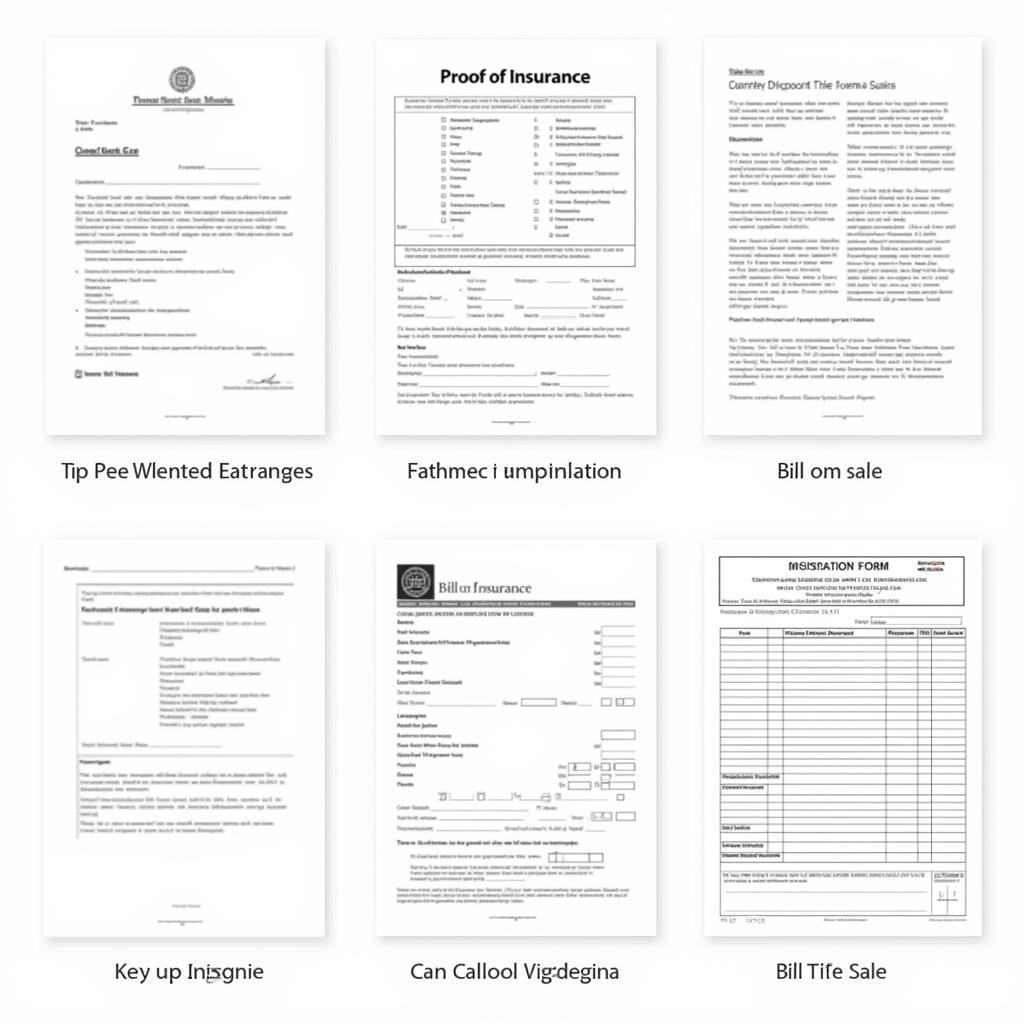Registering a car in Virginia can seem daunting, but with the right information, it’s a manageable process. This guide provides a step-by-step walkthrough, covering everything from required documents to specific scenarios, ensuring you’re well-prepared to navigate the Virginia Department of Motor Vehicles (DMV) procedures.
Understanding the Basics of Car Registration in VA
Before diving into the details, let’s clarify some fundamental aspects of registering a car in Virginia. You’ll need to understand the difference between titling and registering, gather the necessary paperwork, and be aware of the associated fees and deadlines. Knowing these basics will save you time and potential headaches. For those new to the state or unfamiliar with the process, this section is crucial for a smooth registration experience.
Required Documents for Car Registration in Virginia
Gather these essential documents before heading to the DMV:
- Title: The vehicle’s title proves ownership. If you have a loan, the title will be held by the lienholder.
- Proof of Insurance: Virginia law requires minimum liability insurance.
- Virginia Safety Inspection: Your vehicle must pass a safety inspection at a certified Virginia inspection station.
- Vehicle Identification Number (VIN) Verification: For out-of-state vehicles.
- Bill of Sale: If purchased from a private seller.
- Odometer Disclosure Statement: For vehicles less than 10 years old.
- Application for Registration: Available online or at the DMV.
- Payment: Be prepared to pay the registration fees, which vary based on vehicle type and weight.
Thinking about registering a commercial vehicle? Check out our guide on car insurance commercial vehicle for more information.
 Virginia DMV Car Registration Documents
Virginia DMV Car Registration Documents
Navigating the Virginia DMV: In-Person vs. Online
You have two primary options for registering your car in Virginia: in person at a DMV customer service center or online. Each method has its pros and cons. Visiting the DMV allows you to ask questions and receive immediate assistance, but it often involves longer wait times. Online registration is convenient and saves you a trip, but requires you to have all necessary documents readily available in digital format.
Thinking of registering in a different state? Check out our guide on registering a car in florida for more information on registering your car in the Sunshine State.
Specific Scenarios and Considerations
Registering a car in Virginia involves various scenarios that require specific considerations. These include registering a new car, a used car, a car from out of state, or even transferring a registration. Understanding these specific situations will make the process smoother and more efficient.
Registering a Used Car in Virginia
Purchasing a used car in Virginia requires additional steps. Ensure you have a valid bill of sale and that the seller properly transfers the title to your name. Carefully inspect the title for any liens or outstanding issues. If the car is from out of state, you’ll need to obtain a VIN verification.
 Registering a Used Car in Virginia
Registering a Used Car in Virginia
Registering an Out-of-State Car in Virginia
Moving to Virginia with a car registered in another state? You’ll have 30 days to register your vehicle in Virginia. This involves surrendering your out-of-state title and plates, obtaining a Virginia safety inspection and emissions inspection (if applicable), and completing the registration process at the DMV.
You can pay your car registration online in many states these days. This can often be a more convenient option.
Did you know registering a car in New York is a slightly different process? Learn more about car registration ny.
Tips for a Smooth Registration Process
- Prepare in advance: Gather all required documents before heading to the DMV or starting the online process. This will save you time and frustration.
- Check for updates: DMV regulations and fees can change. Stay updated by visiting the official Virginia DMV website.
- Consider online registration: If eligible, online registration offers convenience and avoids long lines.
- Keep records: Maintain copies of all registration documents for your records.
If you’re looking for a unique car buying experience, have a look at specialty motor cars.
Conclusion
Registering a car in VA doesn’t have to be complicated. By understanding the required documents, the process, and specific scenarios, you can navigate the Virginia DMV with confidence. Preparation is key to a smooth and efficient registration experience.
FAQ
- How long is my Virginia car registration valid for? One or two years, depending on your choice.
- What is the grace period for renewing my registration? There is no grace period. Renew before the expiration date.
- Can I register my car online? Yes, in many cases.
- What if I lose my registration card? You can order a duplicate online or at a DMV customer service center.
- Where can I get my car inspected? At a certified Virginia state inspection station.
- How much does it cost to register a car in Virginia? It varies depending on vehicle type and weight.
- Do I need to have my car titled in Virginia? Yes, titling establishes ownership of the vehicle.
Need help? Contact us via WhatsApp: +1(641)206-8880, Email: [email protected] or visit us at 276 Reock St, City of Orange, NJ 07050, United States. Our customer service team is available 24/7.


